
Wu Dang Blu-ray & DVD (Well Go USA)
Welcome to December! Soon enough winter will be upon us. But right now there are plenty of releases to spotlight this week, so let’s get started. If you’re interested in any of these titles, you can support the site by ordering through our affiliate. We appreciate it!
Here are your Blu-ray and DVD releases for the week of 12/4/12:
ASIAN CINEMA
Wu Dang (Blu-ray/DVD) – Well Go USA presents this 2012 Chinese martial arts/fantasy with action choreography from the legendary Corey Yuen. Starring Vincent Zhao of “True Legend”
Godzilla vs. Biollante (Blu-ray/DVD) – Echo Bridge releases this 1989 Godzilla effort on Tuesday, though some customers have already spotted it at retail
Ninja Scroll (Blu-ray/DVD) – the outrageously violent and controversial 1993 anime receives its just due with a Blu-ray release
X-Game (DVD) – this 2010 Japanese splatterflick arrives from the director of “Tokyo Gore School”
Will It Snow For Christmas? (DVD) – the popular 2012 Korean romantic television show with a holiday theme is collected in this 6-disc set
FOREIGN CINEMA
Alps (DVD) – this 2011 Greek-language film, about a mysterious organization impersonating the dead in order to help grieving relatives, is the latest from the celebrated director of “Dogtooth”
The Blue Angel: Remastered Standard Edition (Blu-ray) – Kino Video presents this classic 1930 early sound picture from Germany starring Marlene Dietrich, now on Blu-ray
Purple Noon (Blu-ray/DVD) – the Criterion Collection offers this 1960 French-language telling of the popular ‘Mr. Ripley’ story, starring Alain Delon in the lead role
Unforgivable (DVD) – this 2011 French-language thriller follows a successful crime novelist who becomes embroiled in a dangerous love affair
Tell No One (Blu-ray/DVD) – the popular 2006 French-language thriller receives a hi-definition release
Luchino Visconti Four Film Collection (DVD) – four of Italian neorealist director Luchino Visconti’s films are collected here, ranging from the late 1940’s through the early 70’s
Pablo Larrain: Director’s Collection (DVD) – the films “Tony Manero” and “Post Mortem” are collected in this Double Feature from acclaimed Chilean director pablo Larrain
The Day I Saw Your Heart (DVD) – dysfunctional father-daughter relationships are explored in this 2011 French-language comedy
MAINSTREAM
The Dark Knight Rises (Blu-ray/DVD) – the 2012 final installment in Christopher Nolan’s immensely popular “Dark Knight” trilogy, now on home formats
The Dark Knight Trilogy (Blu-ray/DVD) – featuring Christopher Nolan’s “Batman Begins,” “The Dark Knight,” and “The Dark Knight Rises” in one complete package
Beasts of the Southern Wild (Blu-ray/DVD) – this 2012 lyrical fantasy set in the bayou of Louisiana wowed critics and movie-goers alike
Halo 4: Forward Unto Dawn (Blu-ray/DVD) – a 2012 ‘live action digital series’ based on the popular video game franchise
Finding Nemo (Blu-ray + DVD combo) – 5-disc and 3-disc Collector’s Editions of Pixar’s 2003 animated film are released this week
Up (Blu-ray+DVD combo) – likewise, Pixar’s 2009 animated effort receives the 5-disc Collector’s Edition treatment
NEW ON BLU-RAY
Catch Me If You Can (Blu-ray) – Leonardo Dicaprio and Tom Hanks headline director Steven Spielberg’s 2002 bittersweet comedy-caper
eXistenZ (Blu-ray/DVD) – director David Cronenberg’s 1999 prescient look at the future of video games comes to hi-definition from Echo Bridge
Brazil (Blu-ray/DVD) – Terry Gilliam’s cult-classic 1985 dystopic fantasy receives a hi-definition release from the Criterion Collection
Westerns Unchained (Blu-ray) – this collection from First Look Pictures supposedly presents 25 spaghetti Westerns on just one Blu-ray disc
Francis Ford Coppola: 5-Film Collection (Blu-ray) – a diverse collection of Francis Ford Coppola’s work in one set, including: “Apocalypse Now” and its “Redux,” “One From the Heart,” “Tetro,” and “The Conversation”
Santa Claus Conquers the Martians: Remastered Edition (Blu-ray) – in this 1964 camp classic, Santa Claus is kidnapped by space aliens
CLASSICS
Suddenly (Blu-ray) – in this low-budget 1954 film noir, Frank Sinatra plays a hitman
Marco Polo (DVD) – Alfred Drake is Marco Polo in the 1956 black & white film of the famed seafarer
HORROR
V/H/S (Blu-ray/DVD) – this 2012 indie horror anthology features short films from the directors behind “The House of the Devil” and “Kill List”
Silent Night: Deadly Night 1 & 2 (DVD) – the cult favorite 80’s slasher series with a Christmas theme
Silent Night (Blu-ray/DVD) – this 2012 horror flick featuring a slasher Santa Claus is a remake of “Silent Night, Deadly Night”
Hostel & Hostel II – Double Feature (DVD) – a budget-priced collection of Eli Roth’s torture-based series
Blood Beat: Christmas Horrors (DVD) – Apprehensive Films is printing just 500 copies of this rare 1982 slasher
12/12/12 (Blu-ray/DVD) – Asylum Entertainment releases this horror movie about a newborn baby who might just be the Antichrist
Ritual: Tales From the Crypt (Blu-ray) – this 2002 horror flick co-starring Tim Curry was the third and final feature film released in the Tales From the Crypt series
Interested in any of these movies? If so, we hope that you’ll consider ordering from our affiliate to help support this site. Thank you!

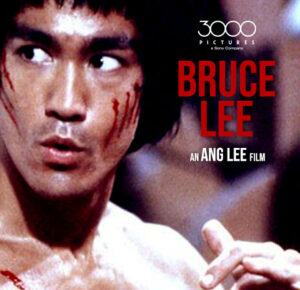
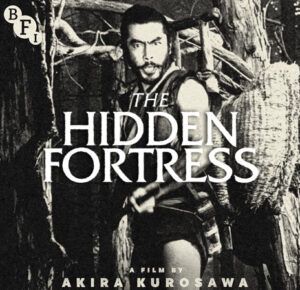

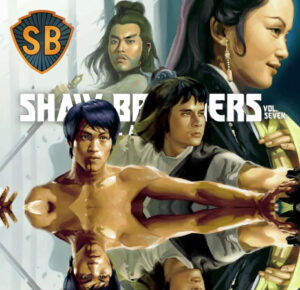










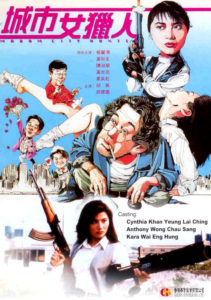
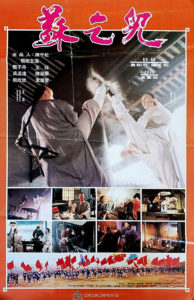



Be the 1st to Comment